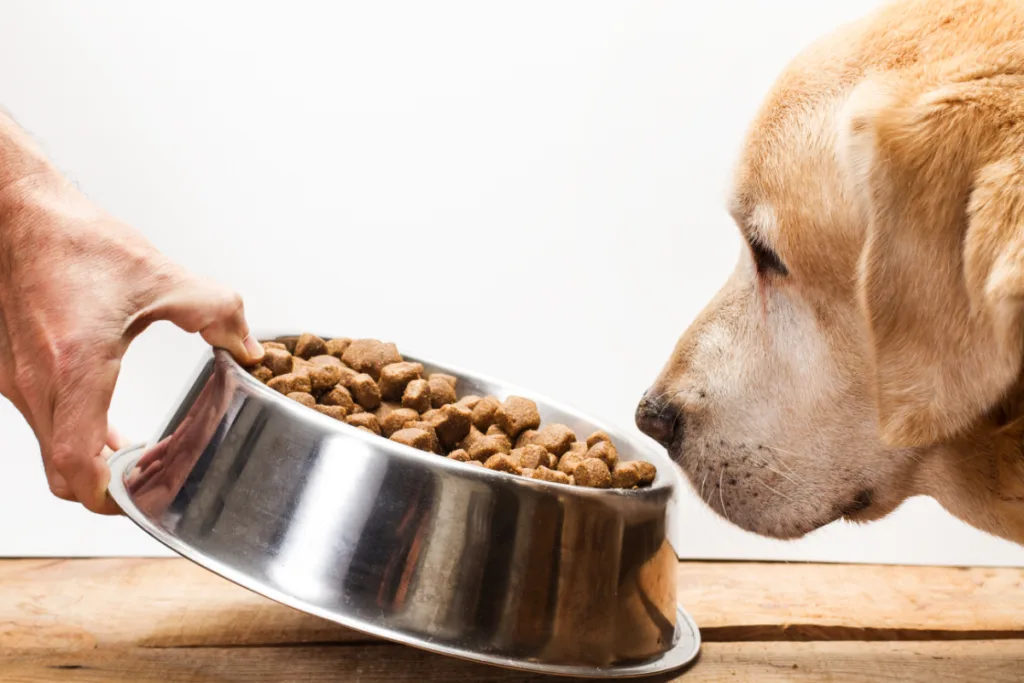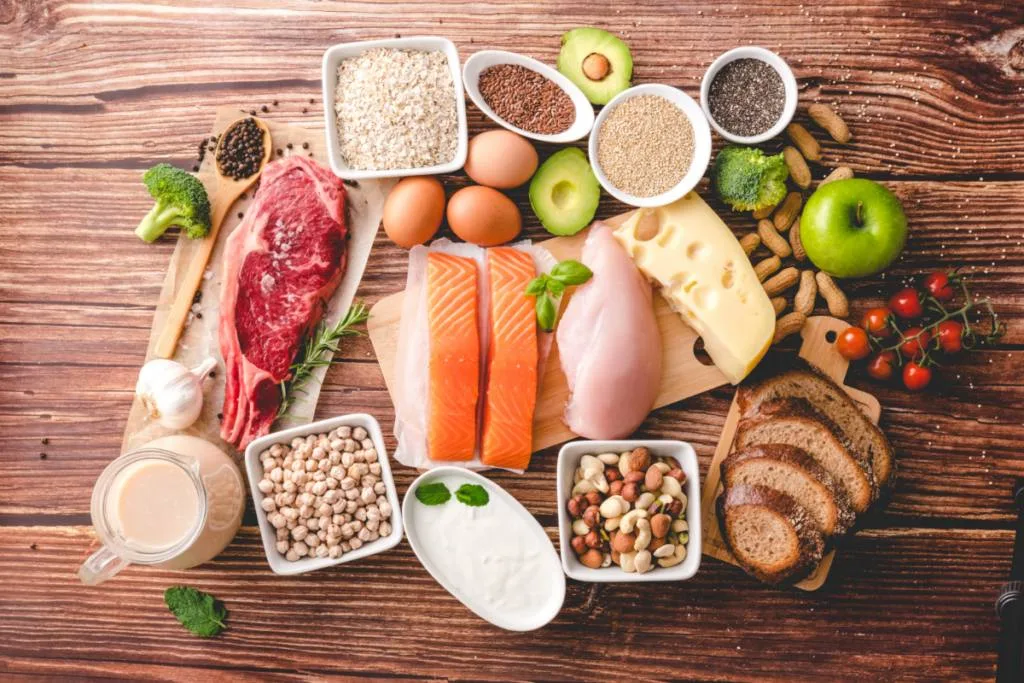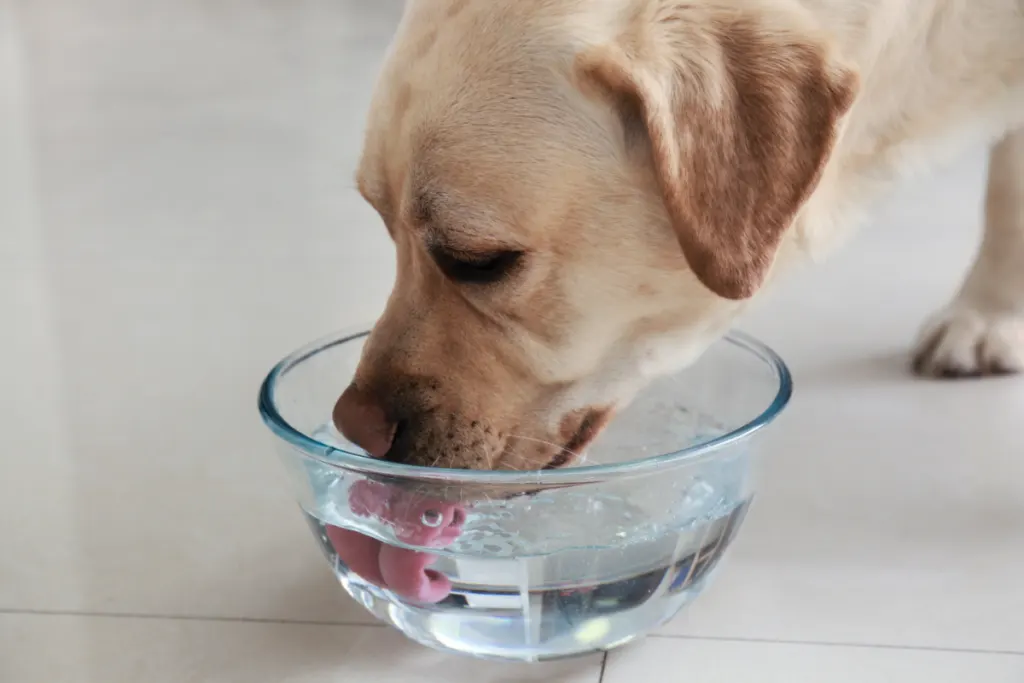Feeding your Labrador puppy is more than just providing sustenance; it’s a fundamental aspect of ensuring their growth, health, and well-being.
Labrador Retrievers are known for their robust appetites and boundless energy, making proper nutrition a crucial consideration from the moment they enter your home.
As a responsible pet owner, understanding the dietary needs of your Labrador puppy is paramount in helping them thrive during their formative months.
In this comprehensive guide, we will delve into the essential nutrition guidelines for feeding your Labrador puppy.
Whether you’re a new Labrador owner or seeking to fine-tune your puppy’s diet, these insights and recommendations will empower you to make informed choices that contribute to a happy, healthy, and well-fed canine companion.

Click Here to Jump to a Section
Puppy Nutrition Basics
Puppyhood is a critical stage in your Labrador’s life when their nutritional needs are different from those of an adult dog.
Providing the right balance of nutrients is essential for proper growth, muscle development, and overall health.
Labrador puppies require a diet rich in high-quality protein to support their growing bodies, including essential amino acids for muscle development.
Adequate fats are also crucial, as they provide a concentrated source of energy and support the development of a healthy coat and skin.
Furthermore, puppies need a variety of vitamins and minerals for bone development, immune function, and overall vitality.
Ensuring your Labrador puppy receives a well-balanced diet sets the foundation for a healthy, active, and happy life.
Choosing the Right Puppy Food
Selecting the right puppy food is a critical decision that directly impacts your Labrador’s health and well-being.
There are various options available, including commercial puppy food and homemade diets.
Commercial puppy food is formulated to meet the specific nutritional needs of growing dogs and is convenient for most pet owners.
When choosing commercial food, look for reputable brands that list meat or meat meal as the primary ingredient and avoid those with excessive fillers or artificial additives.
Homemade diets can also be a viable option but require careful planning to ensure they meet your puppy’s nutritional requirements.
Consult with your veterinarian to determine the best food option for your Labrador puppy, taking into account their age, size, activity level, and any specific dietary needs or sensitivities.
Proper nutrition is a cornerstone of your puppy’s health and happiness, and making the right choice sets them on the path to a vibrant and fulfilling life.
Feeding Schedule
Establishing a consistent feeding schedule is crucial to meet your Labrador puppy’s dietary needs and promote healthy eating habits.
Puppies thrive on routine, so aim for regular feeding times each day.
Divide your puppy’s daily food allowance into several meals to accommodate their small stomachs and high energy levels.
As a general guideline, Labrador puppies typically require three to four meals a day until they reach around six months of age when you can transition to two meals a day.
Monitoring portion sizes is essential to prevent overfeeding, which can lead to obesity.
Following a feeding schedule ensures your puppy receives the necessary nutrients at the right times, helping them maintain steady growth and energy levels.
Protein, Fat, and Nutrient Requirements

Understanding the role of key nutrients in your Labrador puppy’s diet is essential for their growth and development.
Protein is crucial for building strong muscles, tissues, and enzymes, making it a fundamental component of their diet.
Look for puppy foods that contain high-quality sources of protein, such as chicken, beef, or fish.
Fats provide a concentrated source of energy and are essential for the development of a healthy coat and skin.
Essential fatty acids, like omega-3 and omega-6, support cognitive development and overall well-being.
In addition to protein and fats, your Labrador puppy requires a balanced mix of vitamins and minerals to support their immune system, bone development, and overall vitality.
Ensuring your puppy’s diet meets these specific nutrient requirements is vital for their long-term health and happiness.
Avoiding Overfeeding and Obesity
Preventing overfeeding and managing your Labrador puppy’s weight is essential for their overall health and well-being.
Labradors are known for their hearty appetites and love of food, making it crucial to measure portions carefully and avoid free-feeding.
Overfeeding can lead to excessive weight gain and increase the risk of obesity, which can result in various health issues, including joint problems and heart disease.
Monitor your puppy’s body condition and consult with your veterinarian to determine the appropriate portion sizes based on their age, size, and activity level.
Additionally, avoid feeding your puppy table scraps or excessive treats, as these can contribute to weight gain and disrupt their balanced diet.
Maintaining a healthy weight ensures your Labrador puppy enjoys a longer, more active, and fulfilling life.
Transitioning to Adult Food
As your Labrador puppy grows, their dietary needs will change, and transitioning to adult dog food becomes necessary.
Typically, Labradors can transition to adult food between 12 to 24 months of age, depending on their individual growth rate.
Consult with your veterinarian to determine the right timing for your specific puppy.
When transitioning, do so gradually by mixing the current puppy food with the new adult food over several days to prevent digestive upset.
Adult dog food provides a balanced mix of nutrients suitable for the maintenance of an adult Labrador’s body.
Remember to adjust portion sizes accordingly when making the switch to prevent overfeeding or underfeeding.
A smooth transition to adult food ensures your Labrador continues to receive the appropriate nutrition for their age and maintains their health and vitality as they enter adulthood.
Special Dietary Considerations
In some cases, your Labrador puppy may have special dietary needs due to allergies, sensitivities, or medical conditions.
If you suspect your puppy has specific dietary requirements, consult with your veterinarian to determine the best course of action.
They may recommend a specialized diet tailored to your puppy’s unique needs.
Allergies to certain ingredients, such as grains or specific proteins, may require selecting hypoallergenic or limited-ingredient diets.
Additionally, some medical conditions, such as food allergies or digestive disorders, may necessitate prescription diets to manage symptoms effectively.
Always follow your veterinarian’s guidance when addressing special dietary considerations to ensure your Labrador puppy receives the appropriate nutrition while managing their specific condition.
Treats and Snacks
While treats and snacks can be a fun way to reward and bond with your Labrador puppy, it’s essential to choose them wisely.
Opt for treats that are appropriate for puppies and complement their regular diet without adding excessive calories.
Avoid feeding your puppy table scraps or high-calorie human foods, as these can lead to weight gain and digestive issues.
You can also consider using small portions of their regular kibble as treats during training sessions.
Remember that moderation is key when offering treats, and always factor them into your puppy’s daily calorie intake to maintain a healthy weight.
Selecting nutritious and appropriately sized treats ensures your Labrador puppy enjoys an occasional snack without compromising their overall diet or health.
Hydration and Water Needs

Proper hydration is a vital aspect of your Labrador puppy’s nutrition.
Water is essential for various bodily functions, including digestion, temperature regulation, and nutrient absorption.
Always provide your puppy with access to fresh, clean water throughout the day.
Monitor their water intake, especially during hot weather or after vigorous play, to prevent dehydration.
Puppies are more susceptible to dehydration than adult dogs due to their higher activity levels and smaller body size.
Ensuring your Labrador puppy remains adequately hydrated is crucial for their overall health and well-being.
